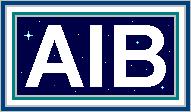| News | Astro Events | History | Tips | Info Base | Reviews | Bookstore | Links | Home |
 |
Tips |
Dealing with Dew
When optical surfaces become colder than the dew point of the surrounding air, moisture will condense on them. This goes for binoculars and for telescope lenses and mirrors. A dirty surface will collect dew faster than a clean one. Whatever you do, do not wipe a way dew! You may damage the optical surface. Besides, more dew will condense on the surface anyway. Instead, warm the surface with an electric hair dryer. Eyepieces can be warmed in your hand. Remove the moisture by waving your hand just in front of it, or by sucking the moisture off with a squeeze bulb.
Exposure to cool air is usually the cause of dewing. You can reduce the effect by shielding the surface from direct exposure to the air around you. A good first step for reflector telescopes is a dewcap stretched over the tube opening behind the mirror. If you do not have a dewcap, an inexpensive plastic shower cap works just as well. If this does not completely take care of the problem, you can use an antidew heater. These are available commercially. Various homemade designs for antidew heaters are also available.
If you do not remove the dew in a reasonable amount of time, your mirrors and lenses will develop water spots, with a small amount of light loss (until your next mirror-cleaning). However, repeated lengthy exposures to dew could damage your mirror's reflective surfaces and your optical coatings.
When a telescope is brought indoors after observing in cold weather, the warm, moist air will cause condensation over all of the telescope's surfaces. Allow the telescope to dry completely before covering it or sealing it in a room. This will help to prevent dewing of the optics if their temperature drops while in storage. Many suggest storing your telescope in a location that has at least some air circulation so that moisture may evaporate. It is a good idea to have some vent holes in your dust covers, or perhaps use cloth rather than plastic covers. This will allow your telescope to "breathe" as the temperature changes. However you cover your telescope, be sure that your storage location is dry and tolerates only a moderate temperature range.
Be sure to visit the Base Bookstore, an affiliate of
| News | Astro Events | History | Tips | Info Base | Reviews | Bookstore | Links | Home |